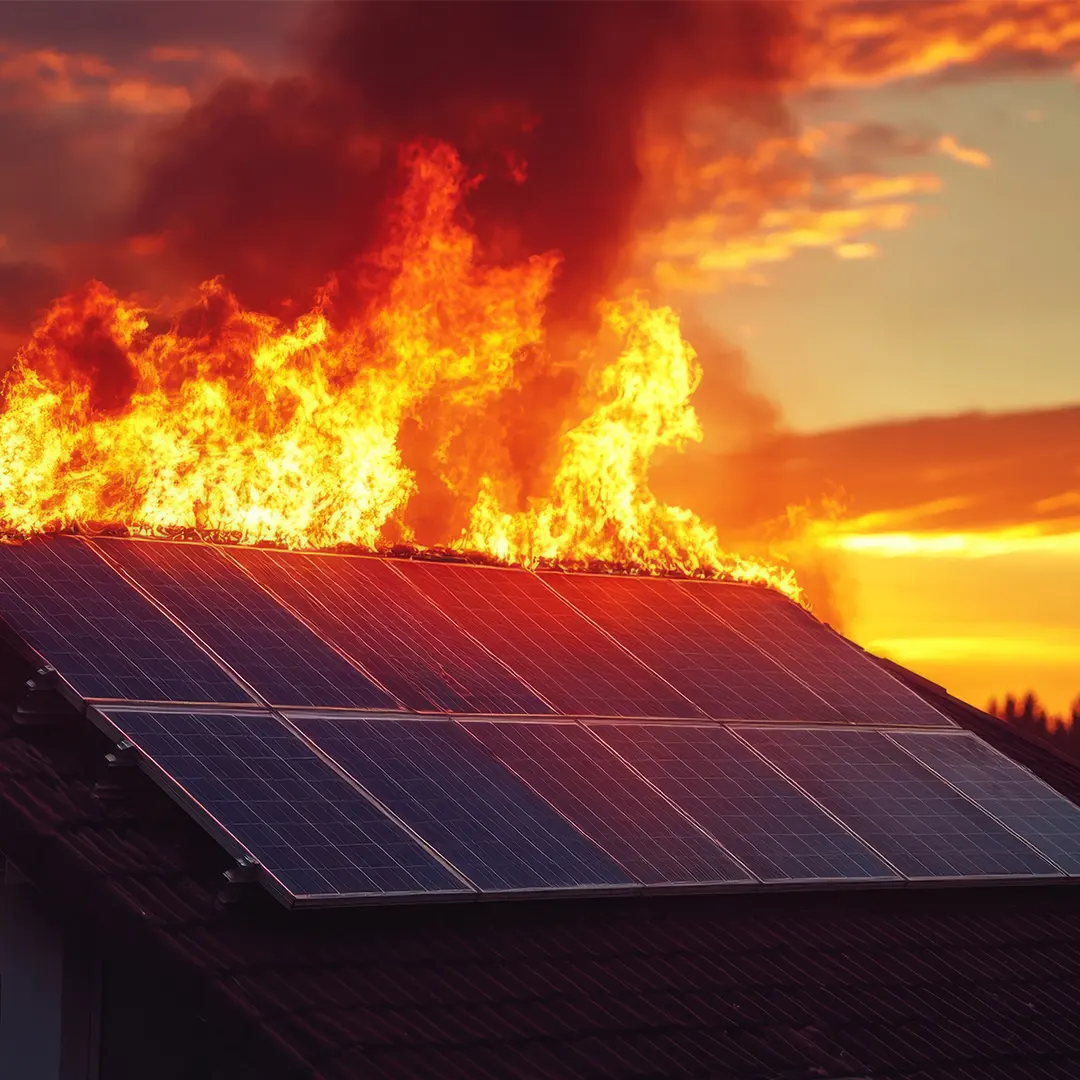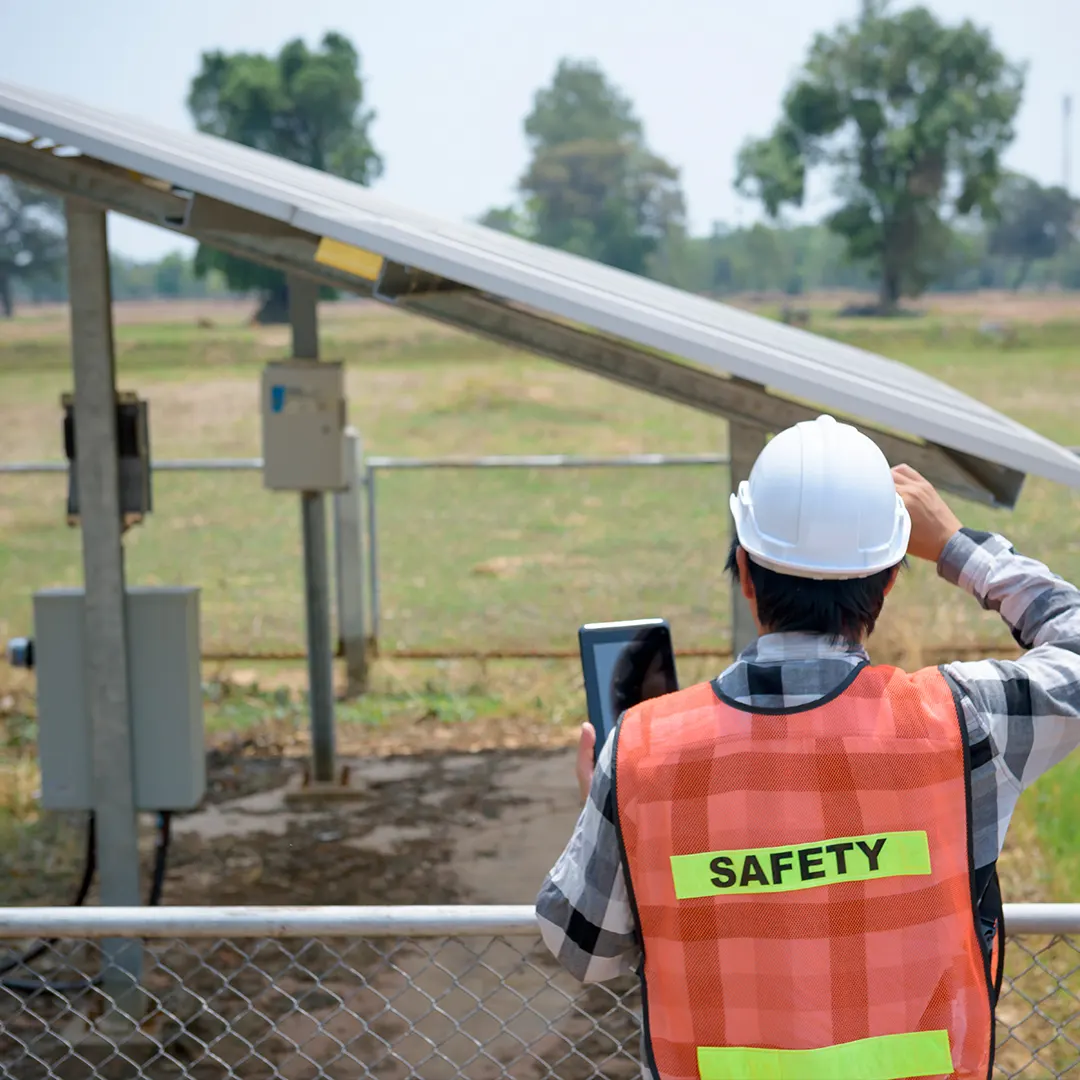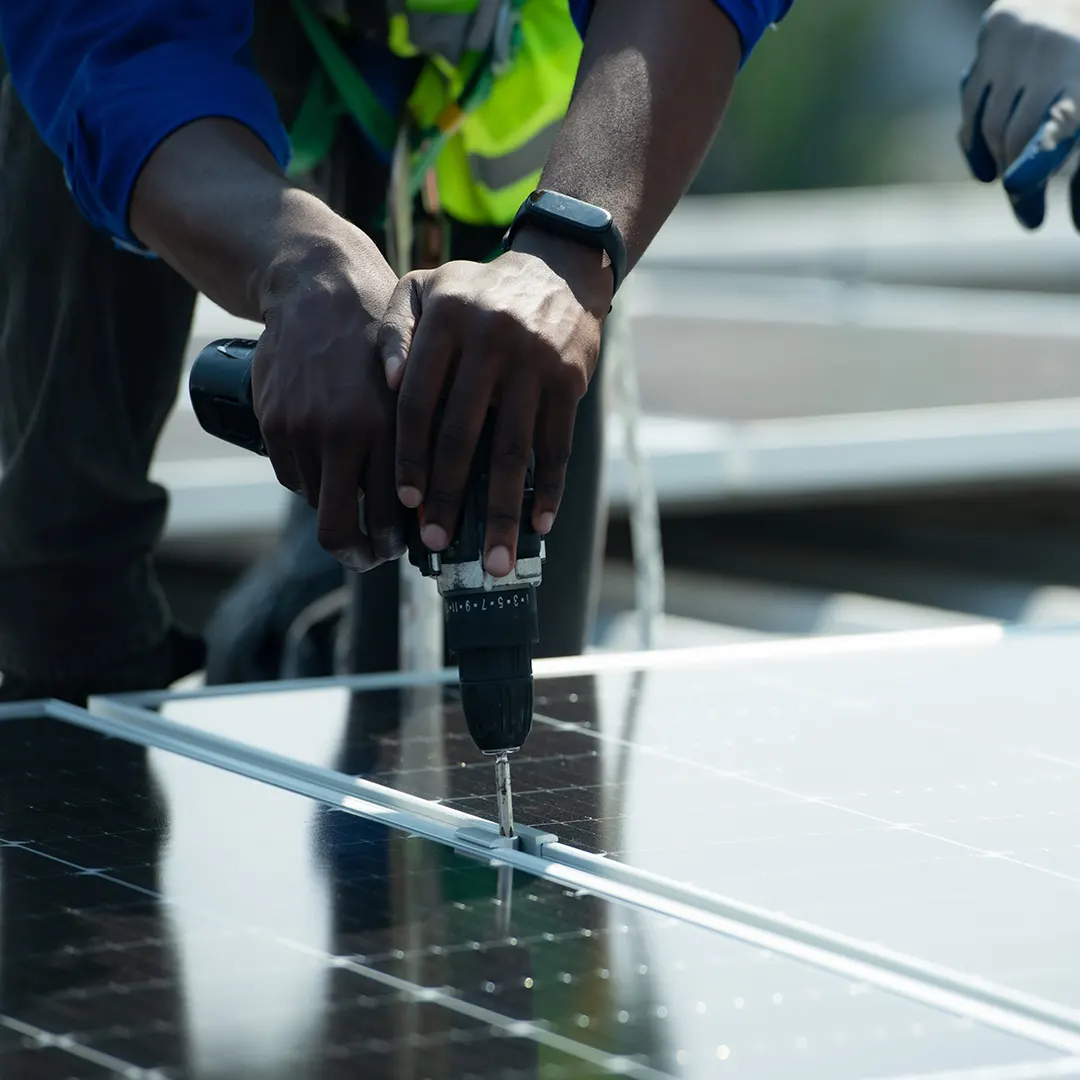
Preventing Solar Panel Fire Hazards: A Safety Guide
Solar energy has revolutionized electricity generation, offering a clean, cost-effective alternative to traditional power sources. Its benefits - reduced electricity bills, zero greenhouse gas emissions, and low maintenance - have made it increasingly popular across the globe. In India, its adoption extends beyond urban rooftops to rural villages, empowering communities with sustainable energy solutions.
However, while the benefits are significant, it’s crucial to understand the safety aspects of solar energy systems. Though rare, solar panel fires can pose serious risks to property and people. Whether you're planning to install a solar system for a residential apartment, individual home, commercial space, or any other facility, it’s essential to be informed about potential fire hazards.
In this blog, we’ll explore how often solar panel fires occur, their common causes, prevention strategies, and the safety measures you should consider before installing a solar system.
The transition to clean energy has made solar power a mainstream source of electricity. With increasing installations by leading solar panel manufacturers in India , the spotlight is also on ensuring the safety of solar energy systems. While rare, solar panel fires can occur, and understanding the causes, risks, and prevention methods is essential for safe operation.

Understanding Fire Hazards in Solar Energy Systems
Solar power systems, particularly solar PV modules, are generally safe when installed and maintained correctly. However, they are electrical systems, and like any such system, they can become fire hazards under specific conditions.
Preventing any risk begins with identifying its root cause. Before diving into prevention and safety strategies for solar panel fire hazards, it’s important to understand the factors that can lead to such incidents.
1. Flaws in Solar Panel Design
Design errors in a solar system can significantly raise the risk of fire. Issues like improper electrical wiring, poor ventilation, or incorrect insulation can cause heat to build up. Over time, this heat may lead to electrical failures or fire. To avoid such risks, it is crucial to choose solar panels from reputable and certified solar panel manufacturers who strictly adhere to safety protocols and industry standards.
2. Defective Components
Malfunctioning parts—such as connectors, wiring, inverters, or isolators - are common culprits behind overheating, short circuits, or electrical arcing. These issues can escalate quickly if not addressed. That’s why routine maintenance and professional inspection of your rooftop solar system are essential. Early detection of component defects helps prevent major safety hazards.
3. Improper Installation
Poor installation is another leading cause of solar panel-related fires. Common errors include loose terminal connections, insufficient grounding, or water intrusion into DC isolators. These flaws can lead to excessive heating or electrical failure. DIY installations without proper knowledge can be risky - always rely on certified, experienced installers who follow safety standards and best practices.
4. Environmental and Climatic Factors
While human error is a significant factor, natural elements can also contribute to fire risks. Lightning strikes, high temperatures, hailstorms, or nearby external fires may damage your solar setup. Although these are beyond human control, regular inspections and maintenance can help identify damage early and ensure timely repairs to minimize fire risks.
Each of these issues can be mitigated by choosing experienced solar energy manufacturers and certified installers.
Choosing the Right Solar Module Structure for Safety
A well-designed solar module structure provides adequate ventilation and ensures heat dissipation. The type of frame and racking system plays a role in preventing heat accumulation, a common precursor to thermal runaways and fires.
Tips for Safe Structural Design:
- Opt for anodized aluminum frames with high corrosion resistance
- Ensure proper earthing and bonding
- Use fire-rated materials wherever possible

Practical Steps to Prevent Solar Panel Fire Hazards
While solar systems are generally safe, a few preventive measures can go a long way in minimizing fire risks. Here are some essential steps every solar system owner should follow:
1. Hire Certified and Experienced Installers
Always choose certified professionals for your solar installation. Trained installers follow established safety protocols, ensure proper grounding, and securely connect every component - drastically lowering the chances of loose wiring, short circuits, or faulty assembly. Partnering with certified experts means your system is compliant with national and international safety standards.
2. Schedule Routine Maintenance and Inspections
Regular upkeep is key to maintaining the long-term safety and efficiency of your solar system. Engage qualified technicians to inspect panels, junction boxes, inverters, and wiring at least once a year. This proactive approach helps detect wear, corrosion, or potential faults early - before they escalate into serious hazards.
3. Use Smart Monitoring Systems
Modern solar systems come equipped with advanced monitoring technologies that allow real-time tracking of performance. Mobile apps and dashboards can alert you to unusual behavior, such as sudden drops in output or abnormal voltage patterns. Addressing these anomalies quickly can prevent larger technical issues.

How PIXON Ensures Fire-Safe Solar Installations
At PIXON, we prioritize safety by using top-tier materials and following strict quality protocols. Our products include fire-rated backsheets, smart connectors, and premium mono PERC solar panels that reduce the risk of thermal events.
Explore our products page or contact us to learn more.
Related Blogs:
Final Thoughts
Solar energy is one of the safest and cleanest power sources when implemented correctly. With the right components, proper installation, and timely maintenance, the risk of fire can be almost entirely eliminated. Always choose products from trusted solar panel manufacturers, ensure compliance with national and international standards, and conduct regular inspections.
For more information on fire-safe solar installations, contact us today and let our experts guide you.
FAQ Section
No, they are rare, especially when systems are sourced from certified solar energy manufacturers and installed correctly.
Burnt smell, unexpected inverter shutdowns, and hot spots visible in thermal scans.
Yes, their efficient design and lower heat production help reduce potential fire hazards.
Trusted solar panel manufacturers ensure rigorous testing, certified materials, and compliance with global standards.
Immediately shut down the system and contact a certified technician.